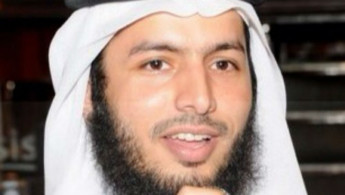UAE prisoner Imran al-Radwan 'on 40th day' of hunger strike
Imran al-Radwan started his hunger strike on May 25, consuming only water and milk, in response to alleged abuse by prison guards at Al-Razeen jail.
The International Centre for Justice and Human Rights (ICJHR) has urged authorities to "take responsibility for the hunger strike and the deterioration of Radwan's health."
A prison doctor reportedly threatened to force-feed Radwan after his health deteriorated significantly last week.
Force-feeding patients is considered a form of torture and the UN has condemned it as "inhumane".
Radwan originally started the hunger strike in protest against enforced strip searches in the prison, a practice that some academics have categorised as sexual abuse.
"The prison administration takes this search procedure as a systematic approach to humiliate political prisoners and violate their privacy," the ICJHR said in a statement.
 |
Beneath the facade of glitz and glamour, a far more sinister side to the UAE has emerged showing the UAE as a deeply repressive state where activists critical of the government can be tossed in jail merely for posting a tweet |  |
The ICHJR has catalogued 79 prisoners of conscience who were detained by the authorities for voicing dissent.
One of the detained men is Abdulrahman Bin Sobeih, who was arrested and deported from Indonesia for his role in the 2011 Arab Spring uprising.
In March 2011, a group of Emirati academics, lawyers, teachers and activists signed a petition demanding reforms from the authorities.
This UAE94 group was allegedly connected to al-Islah (reform), a political Islamist organisation with links to the Muslim Brotherhood.
Amnesty International reports that a large number of people were "harassed, arrested and in some cases tortured" for "offending the state".
"Beneath the facade of glitz and glamour, a far more sinister side to the UAE has emerged showing the UAE as a deeply repressive state where activists critical of the government can be tossed in jail merely for posting a tweet," said Hassiba Hadj Sahraoui, a MENA director for Amnesty.
In November, Human Rights Watch reported that GCC states have deployed surveillance technology to track and monitor citizens' online activity since the 2011 uprisings.
This software can enable a government to access emails, text messages and potentially passwords, research by Citizen Lab found.





 Follow the Middle East's top stories in English at The New Arab on Google News
Follow the Middle East's top stories in English at The New Arab on Google News
![Israeli forces ordered bombed Gaza's Jabalia, ordering residents to leave [Getty]](/sites/default/files/styles/image_330x185/public/2176418030.jpeg?h=a5f2f23a&itok=_YGZaP1z)

